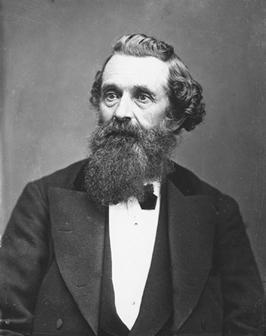
Taken from the book Lorenzo Snow by Francis M Gibbons.
The LDS Church members arriving in the mountains in the days of 1850 were spreading out over the land to find a place to make a living in the wilderness. Brigham Young asked the 12 apostles to be responsible for specific areas. Ezra Taft Benson was assigned to Cache Valley, Franklin D Richards was assigned to Ogden, and Lorenzo Snow was assigned to Brigham City.
Brigham City was not a most favorable place since water sources were a problem and insects were abundant, but Lorenzo, at Brigham’s suggestion invited about fifty families to accompany him to develop the area. The objective was to assist the people to succeed spiritually, educationally, and economically. Lorenzo had extraordinary talent and ability in all these areas.
In an effort to foster industry among the people, Elder Snow and three other investors organized what became known as the Brigham City Mercantile and Manufacturing Association with an investment of $3,000 capital. At first, those who labored in the manufacturing process would be paid by receiving goods sold at the store and in receiving capitol stock in the company. The system began to grow and obtained a substantial capital surplus. The Association branched out from one industry to another until there were thirty or forty different enterprises. Among the first activities was a leather tannery which branched out to include shoe, boot, harness and saddle manufacturing. A woolen mill also was constructed which was supplied with raw wool from a herd of sheep that started out at about 1,500 but grew until the band of sheep numbered up to 10,000.
Eventually a home manufacturing organization was included, whereby capitalization was tied to a system of monetary exchange, called scrip, which could be used within the entire system.
One evening a tragedy occurred which brought great stress to the whole organization. The woolen mill caught fire and was demolished in a few minutes. The cost of rebuilding the mill was so great that the Association was unable to rebuild without going into debt. To obtain the money, the Association decided to take a contract with the Utah & Northern Railroad to furnish ties and other wood products. This required construction of a saw mill in Marsh valley thus employing 100 men in the logging and milling industry. No sooner had the project got under way than an injunction was obtained by those opposed to the operation to stop the work. The legal delays effectively killed the project, for by the time the courts settled in favor of the Association the contract from the railroad had been withdrawn.
The failed forest operation increased the indebtedness and was further exacerbated by an attack by a tax collector who claimed that the scrip method of financial interchange required a payment of over ten thousand dollars. The courts eventually came to the conclusion that the government must return the payment but it came too late to save the Association. In all the efforts to help his people economically, Elder Snow always taught that the gospel of Jesus Christ applied directly to the economic pursuits as much as to any other facet of life. He quoted the Lord’s declaration of the greatest commandment and reminded all that on this hangs the law.